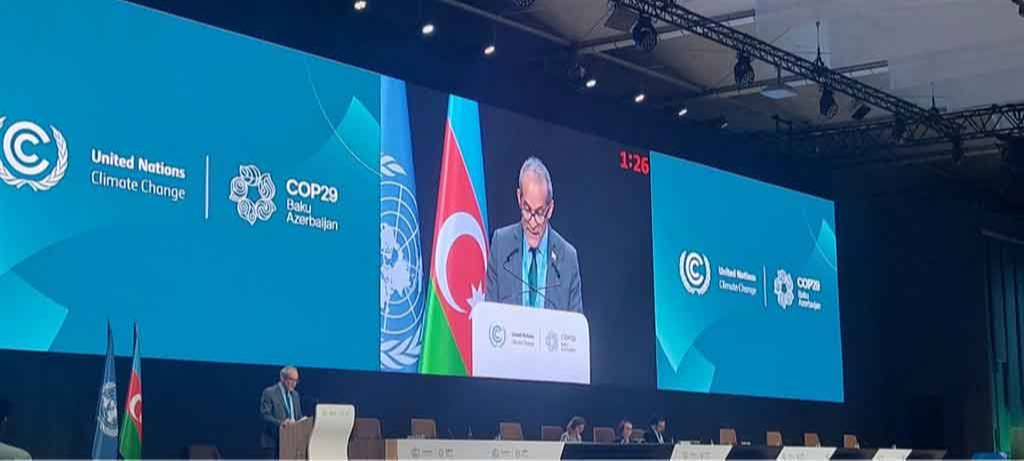The Minister of Science, Technology and Environment of Cuba and head of the delegation to the 29th Conference on Climate Change (COP29), Armando Rodríguez Batista, emphasized today the significance of the current meeting in addressing climate change on a global scale.
According to Rodríguez, climate change is not a future risk but a present and real threat to billions of people, particularly for island developing nations.
In this context, the contribution of COP29 is crucial, as Rodríguez stated, emphasizing that strengthening climate ambition is possible only when countries have access to the necessary resources under the right conditions.
He also highlighted that Cuba has been affected by natural disasters caused by climate change, which have resulted in substantial losses. This situation is further exacerbated by the economic, commercial, and financial blockade imposed by the United States, which constitutes a major obstacle to their development.
Rodríguez also noted that without a predictable and facilitated flow of the required resources, all efforts to mitigate and enhance resilience in developing countries risk remaining mere rhetoric.
Unfortunately, the slow pace of international negotiations and uncertainties surrounding climate finance undermine the confidence necessary for achieving the adaptation and mitigation goals.
The minister emphasized that the Fund for Losses and Damages is not expected to become operational until 2026, and the negotiations for the new financial goal have been hindered by attempts to undermine the foundations of the Paris Agreement.
He stressed that the meeting in Baku is a unique opportunity to implement the agreements reached through more than three decades of negotiations.
He also pointed out that while the argument is often made that those responsible for providing funding lack the necessary resources to meet the identified needs, it is well-known that global defense spending has increased by nine percent.
In 2023, this expenditure reached a record high of 2.2 trillion dollars, with the United States leading the way.
Developing countries, Rodríguez added, have the moral authority to demand that their counterparts in developed nations fulfill their commitments: to lead in mitigation efforts and provide the necessary financial support.


